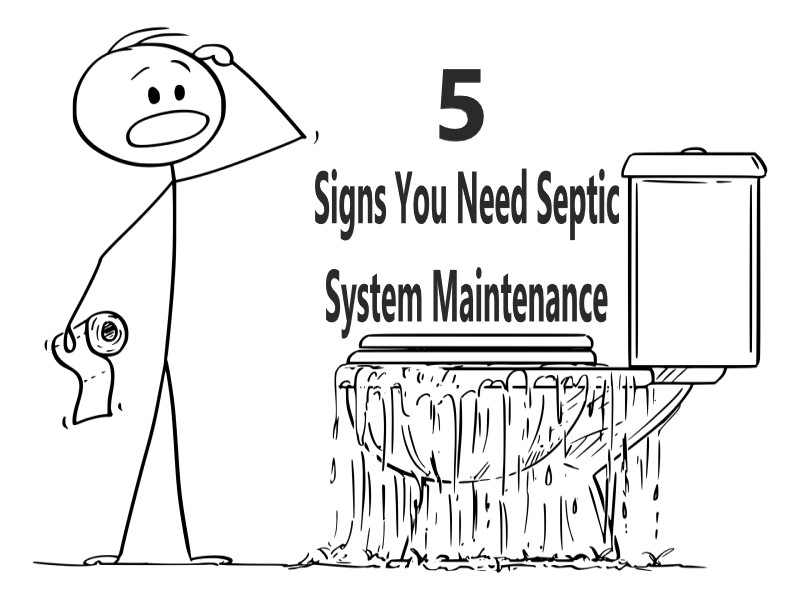Septic systems are an essential part of any home that is not connected to the municipal sewage system. These systems treat wastewater from the home and release it into the environment, usually into a septic tank and drain field. As with any other household appliance, septic systems require regular maintenance to ensure they continue to function properly. There are typically five distinct signs to look out for letting you know that your septic system needs maintenance.
1. Septic System Drains Slow
One of the most common signs that your septic system needs maintenance is slow drains. If you observe that your sinks, toilets, or bathtub are draining slowly, it may be a sign that your septic tank is full or that your drain field is clogged. In either case, you will need to call a professional septic service to have the tank pumped or the drain field cleaned.
Other issues, such as tree roots invading the pipes or a blockage in the plumbing, can also cause slow drains. However, if you notice slow drains along with other signs on this list, it is more likely that your septic system is the culprit.
2. Foul Odor Coming From Septic System
Another sign that your septic system needs maintenance is foul odors. If you notice a sewage smell coming from your drains, toilets, or outside your home, it is a sign that your septic system is not working correctly. A full septic tank, a clogged drain field, or a leak in the pipes can cause the odor. Foul odors from your septic system are not only unpleasant but can also be a health hazard. If you notice this sign, it is essential to call a professional septic service, like Strictly Septic, to diagnose and fix the problem.
3. Soggy Areas In Yard
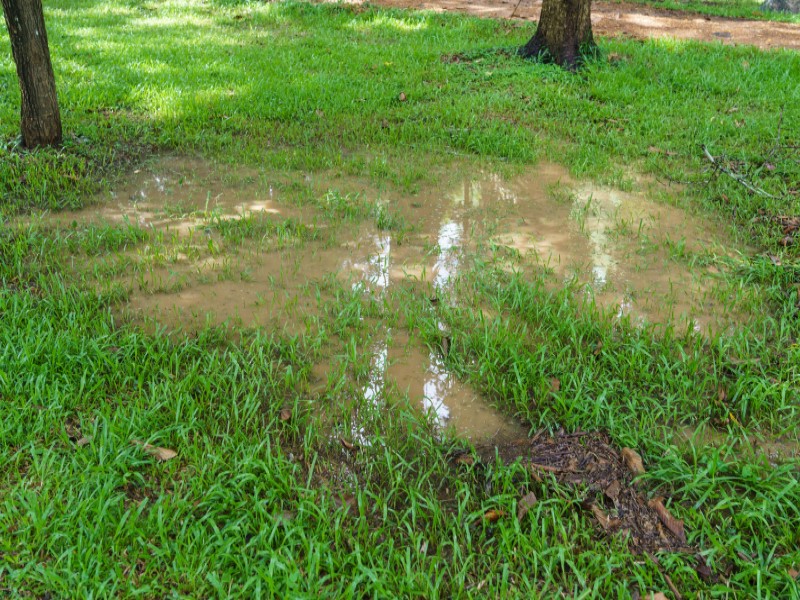
If you notice soggy areas in your yard, it may be a sign that your septic system needs maintenance. A septic system that is working correctly should not leave standing water or create wet areas in the yard. If you become aware of a soggy area near your septic tank or drain field, it may be a sign of a leak or a clogged drain field. Other issues, such as poor drainage or a broken sprinkler system can also cause soggy areas in the yard. However, if you notice this sign along with other signs on this list, it is more likely that your septic system needs maintenance.
4. Wastewater Backup

If you start to see wastewater backing up into your home, it is a sign of a severe septic system problem. A full septic tank or a clogged drain field can cause wastewater to back up into your sinks, toilets, or bathtub. This issue can be dangerous, as it can expose you and your family to harmful bacteria and other contaminants. If you see this sign, it is essential to call a professional septic service immediately. They will be able to diagnose the problem and fix it before it becomes a more significant health hazard.
5. High Level of Nitrates In Well Water
If your home has a well, high levels of nitrates in the water can be a clue that your septic system needs maintenance. Nitrates are a common byproduct of septic systems and can seep into the ground and contaminate well water. If you observe high levels of nitrates in your well water, it is a clear indication that your septic system is not working correctly. Testing your well water for nitrates is an essential part of regular septic system maintenance. If you notice high levels of nitrates, it is imperative to call a professional septic service to have your septic system inspected and repaired. Learn how to test your water.
All in all, regular septic system maintenance is essential for keeping your system working correctly and avoiding costly repairs. If you notice any of the signs listed above contact Strictly Septic to make sure your septic tank is in tip top shape.
Septic System Maintenance
Septic pumping
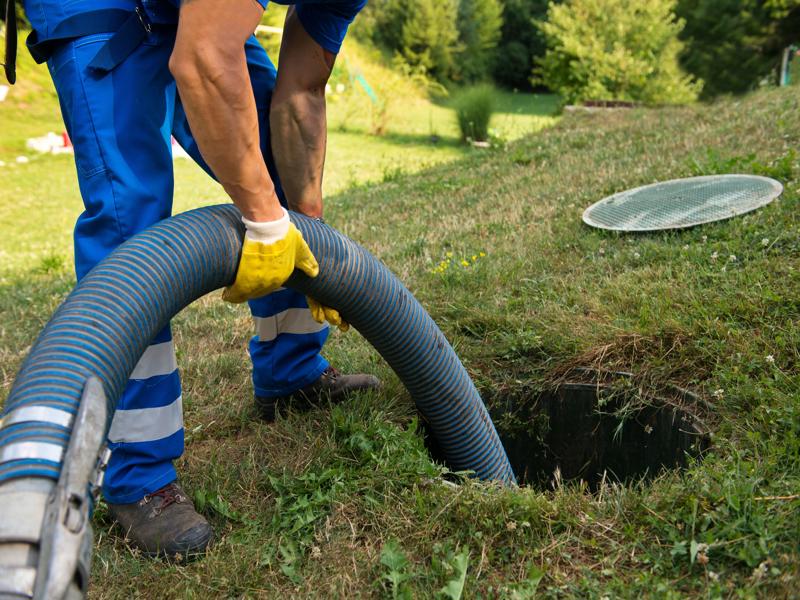
There are some measures you can put in place to make sure none of these signs ever creep up. One of the most critical maintenance tasks for your septic system is regular pumping. The frequency of pumping depends on the size of the tank and the number of occupants in the home.
On average, a septic tank should be pumped every three to five years. Failure to pump the tank regularly can result in solids accumulating in the tank, causing blockages and potentially leading to system failure. Use your water wisely.
Conserve water
Conserving water can go a long way in preventing septic system problems. The more water that is used in the household, the more strain it puts on the septic system. Overloading the system with water can cause it to become overwhelmed and fail. To prevent this from happening, fix leaky faucets, install low-flow showerheads and toilets, and spread out water usage throughout the day.
Be careful what you flush!
Do not use the toilet as a trash can! The toilet is not a garbage disposal. Flushing non-biodegradable materials such as paper towels, sanitary napkins, diapers, and other items can cause clogs and damage to the septic system. Only human waste and toilet paper should be flushed down the toilet.
Be careful how you dispose of hazards chemicals
Properly dispose of your hazardous chemicals. Chemicals such as gasoline, oil, paints, and other hazardous chemicals should never be disposed of down the drain or flushed down the toilet. These chemicals can disrupt the natural balance of the septic system and cause system failure. Avoid excessive use of cleaning products. Cleaning products such as bleach, disinfectants, and other chemicals can kill off the beneficial bacteria that help break down solids in the septic tank. Using excessive amounts of these products can disrupt the natural balance of the septic system and cause problems.
Maintain drain field / leach field
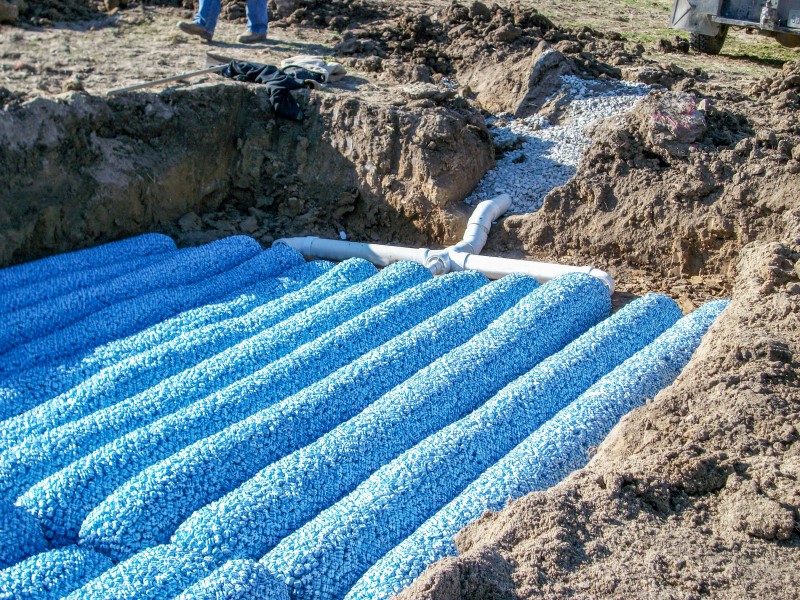
Maintain your drain field. The drain field is the area where the wastewater from the septic tank is dispersed into the soil. Proper maintenance of the drain field is necessary to ensure that it functions correctly. Avoid driving or parking vehicles over the drain field, keep trees and other plants away from the area, and avoid placing heavy objects on the drain field.
Septic inspections
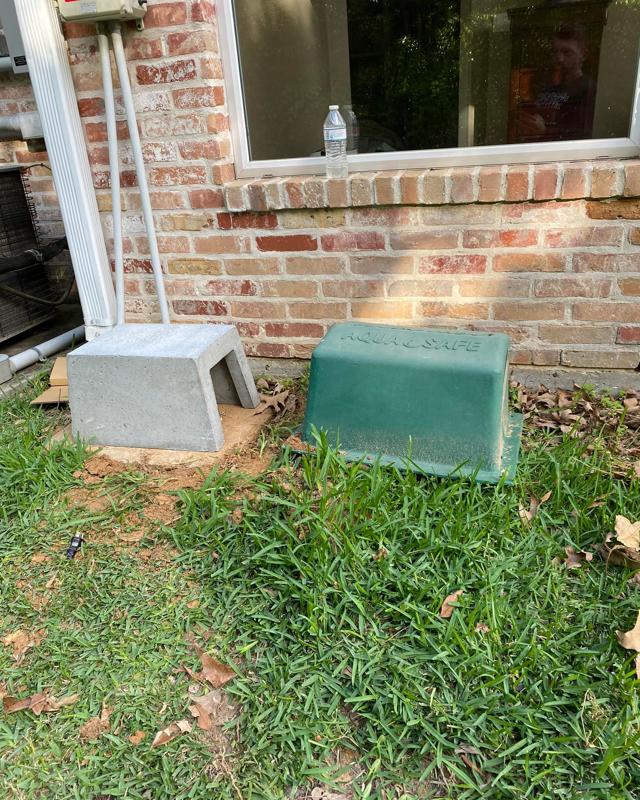
Ensure you have regular inspections. Having your septic system inspected regularly can help identify potential problems before they become major issues. A professional septic service can perform a visual inspection of the system, check for signs of leaks, and identify any other issues that need attention. If you keep up with these measures then you should have a septic tank system that works for years without needing costly repairs, or worse, replacement.

